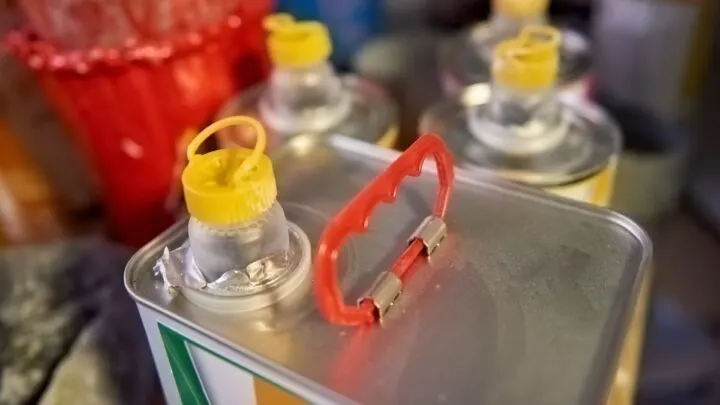Have you accidentally sprayed paint thinner on your plastic and are now concerned that it will melt? Or do you want to use paint thinner on your plastic items but aren’t sure if it actually will melt them?
Whatever your dilemma is, you’ve arrived at the right place.
They have little effect on most plastics but may, however, harm delicate plastics and degrade styrofoam over time.
Paint thinner can easily melt soft plastics, acrylics, and styrofoam if you apply paint thinner to them.
So without further ado, let’s see what happens to plastic when paint thinners are applied to it in detail.
Will Acetone Dissolve Plastic?
Paint has acetone in it, which acts as a hidden component and can melt many different types of plastic.
Acetone is also an active ingredient found in nail polish removers and it can dissolve many plastics.
Acetone molecules usually bind to polymer chains and they break them into smaller pieces until the polymer chains become too small to continue the bond.
As a result of this degradation, polymer chains break up into individual monomers, making the plastic dissolve.
Will Mineral Spirits Cause Plastic Damage?
This is a common concern when using a paint thinner. Mineral spirits contain methylene chloride and ethanol as basic ingredients.
Both of these chemicals have the potential to react with the plastic which can result in chemical burns on the surface.
Mineral spirits, on one hand, are known to react with plastic when they are exposed to heat.
The reason for this is that they both hold methylene chloride and alcohol, a solvent usually used in paint thinners.
This means, there’s a chance of getting chemical burns on plastic surfaces if you use them together.
As we all know, they both are volatile solvents, so caution should be exercised when utilizing them.
Is It Okay to Put Paint Thinner On Plastic?
As paint thinners are considered a dangerous product, you must be careful when you are using and storing them.
One of the most common concerns about paint thinners is how to keep them stored appropriately.
You might notice that most regular plastic thinners are frequently marketed in plastic containers, implying that it is safe to use in plastic containers.
But it is always suggested to do a sample test beforehand to avoid any inconvenience.
If you are going to use paint thinner in any form of plastic, keep in mind that it won’t work well on thin plastics.
Also, paint thinners should not be mixed with water in a plastic container or cup, as these plastic materials may not be able to withstand the paint thinner’s strength.
If you are not confident about using the paint thinner in a plastic container, you can also use a metal or a ceramic bowl.
You can check the plastic by pouring some acetone into the bottle to see how it reacts. If acetone does not cause any damage to the plastic, then it is good to use.
It is important to make sure that paint thinners should never be stored in plastic bags either, as they are far too thin and will not withstand the solvent’s strength.
To get the greatest results, always use plastic that is thick and robust.

Is It Possible to Clean Plastic With Thinner?
You should not clean plastic with a thinner. When cleaning plastic, make sure you never use a dry towel to wipe it down, since it will scratch it.
Excessive use of chemicals like mineral turpentine, methylated spirits, and paint thinners will only cause the plastic to discolor and chip over time.
How Can I Remove Paint From Plastic?
If you’ve spilled paint on your plastic products, you should clean it up right away.
Rubbing alcohol, rather than harsh paint thinners, can be used to remove the paint without melting the plastic in this scenario.
To avoid inhaling the fumes, you should use a face mask and gloves to protect your skin from the particles.
Conclusion to Paint Thinners Melting Plastic
Paint thinners are extremely hazardous compounds, which makes people question how to keep them in plastic or whether they will melt it.
Hopefully, after reading our article, you will know how to handle paint thinners around plastic, whether it is to store them or clean plastics with them.
A general rule of thumb is that paint thinners will more often than not melt everything except the thickest of plastics.


